Experts urge industry to step up data sharing to strengthen India’s R&D ecosystem and enable evidence-based science, technology, and innovation policies
The Department of Science & Technology (DST), Government of India, in collaboration with FICCI, hosted a high-level workshop to discuss the National Survey on Resources Devoted to Scientific & Technological (S&T) Activities 2024-25. The meeting underscored the critical role of private sector participation in building a reliable data framework for shaping India’s innovation and research policies.
Participants from government bodies, industry, academia, and international organisations highlighted that high-quality and comprehensive data is fundamental for evidence-driven policymaking in science and technology
Dr. Arvind Kumar, Advisor and Head of NSTMIS (DST), stressed that industrial organisations must actively contribute to the survey. He noted that while corporates in advanced economies account for 70–75% of total R&D spending, India’s private sector share remains around 36.5%. Despite this, India’s Gross Expenditure on R&D (GERD) has more than doubled over the past decade—from ₹60,196 crore in FY2010-11 to ₹1.27 lakh crore in FY2020-21
Dr. Kumar also drew attention to the government’s proposed ₹1 lakh crore Research, Development & Innovation (RDI) Fund, aimed at providing long-term concessional financing to corporates and startups engaged in sectors such as AI, robotics, quantum computing, energy transition, medical devices, and digital agriculture.
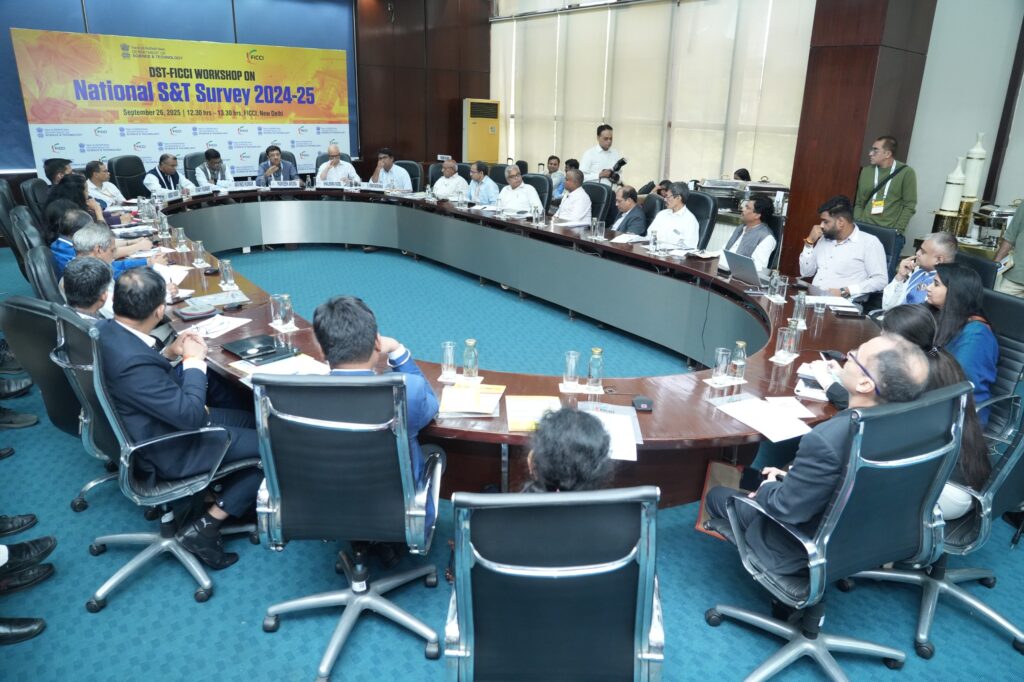
Government and industry perspectives
Shri Vinay Kumar, Head of the Industrial R&D Promotion Programme (DSIR), pointed out that India has over three lakh registered firms but only about 40,000 are represented in national databases. He urged companies to treat data submission as a national duty.
International experts also weighed in. UNESCO’s Shailendra Sigdel highlighted the importance of aligning with international standards like the Frascati Manual, warning that poor-quality data leads to weak policy outcomes. Former NSTMIS head Dr. Praveen Arora recommended simplifying survey instruments to encourage wider industry participation
From the corporate sector, IBM India’s Shri Sankalp Sinha flagged definitional ambiguities in R&D reporting and called for transparent frameworks. Forus Health’s Shri S. Venkatakrishnan stressed long-term investment in high-impact domains, while Mankind Pharma’s Mr. Ayekansh Tyagi proposed incentives such as linking data submission to grant eligibility, engaging interns for data collection, and conducting regular performance reviews.
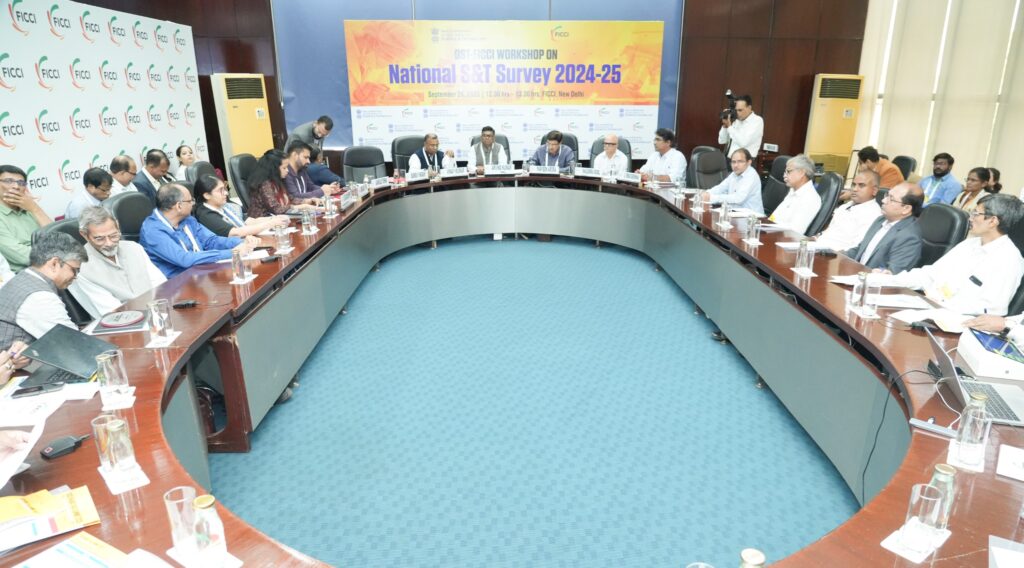
Consensus on way forward
The workshop concluded with agreement that stronger private sector participation and better-quality inputs are essential for the success of the National S&T Survey. Reliable data, stakeholders noted, will not only strengthen policymaking but also spur industrial growth and innovation, helping India achieve its long-term development goals.
About the Survey
The National S&T Survey, conducted by NSTMIS (DST), gathers data from around 8,000 organisations across sectors including public and private enterprises, MNCs, higher education, and NGOs. The 2024-25 edition is being carried out on a web-based platform to ensure efficiency and authenticity, with each respondent organisation given a unique ID for secure data submission.


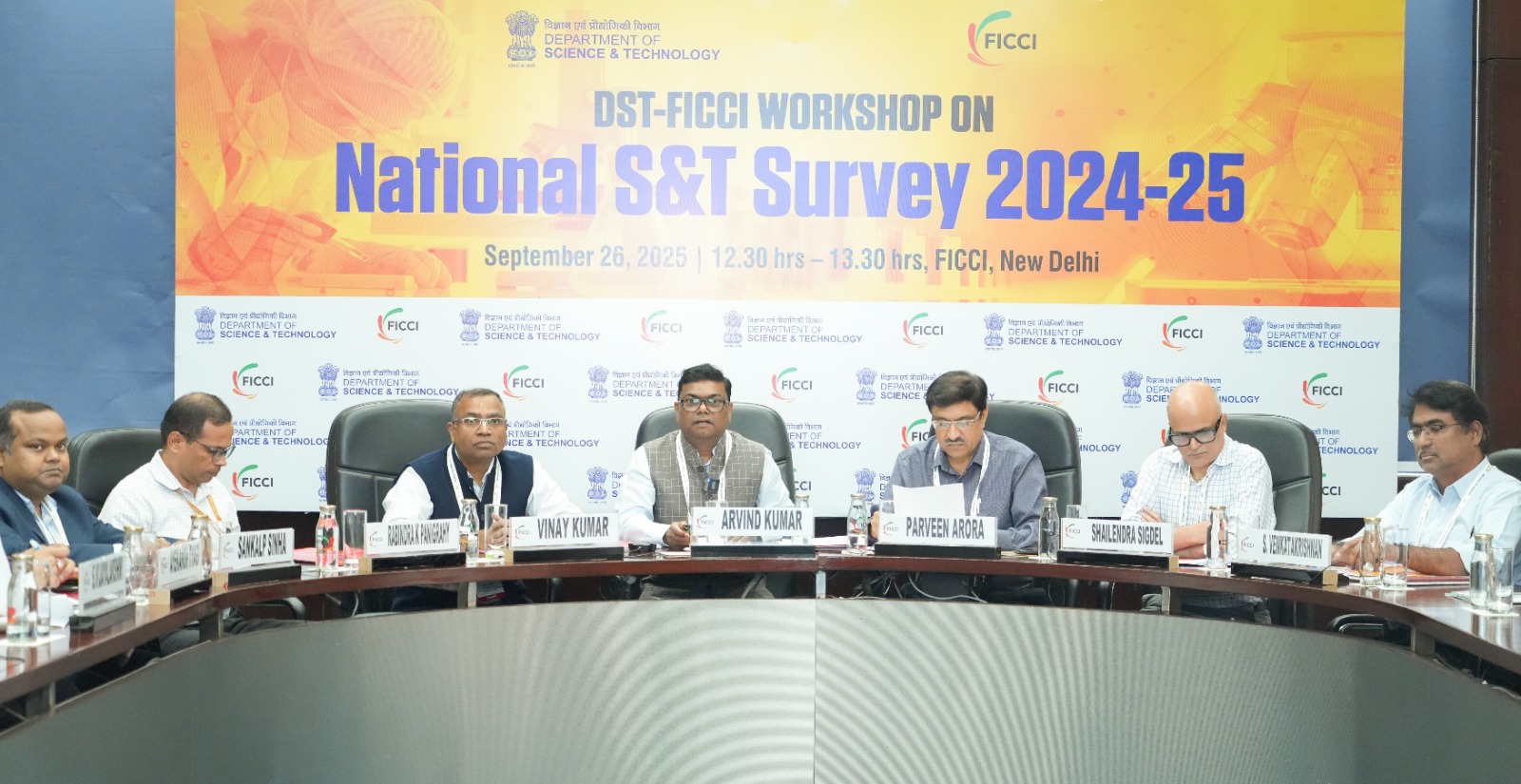
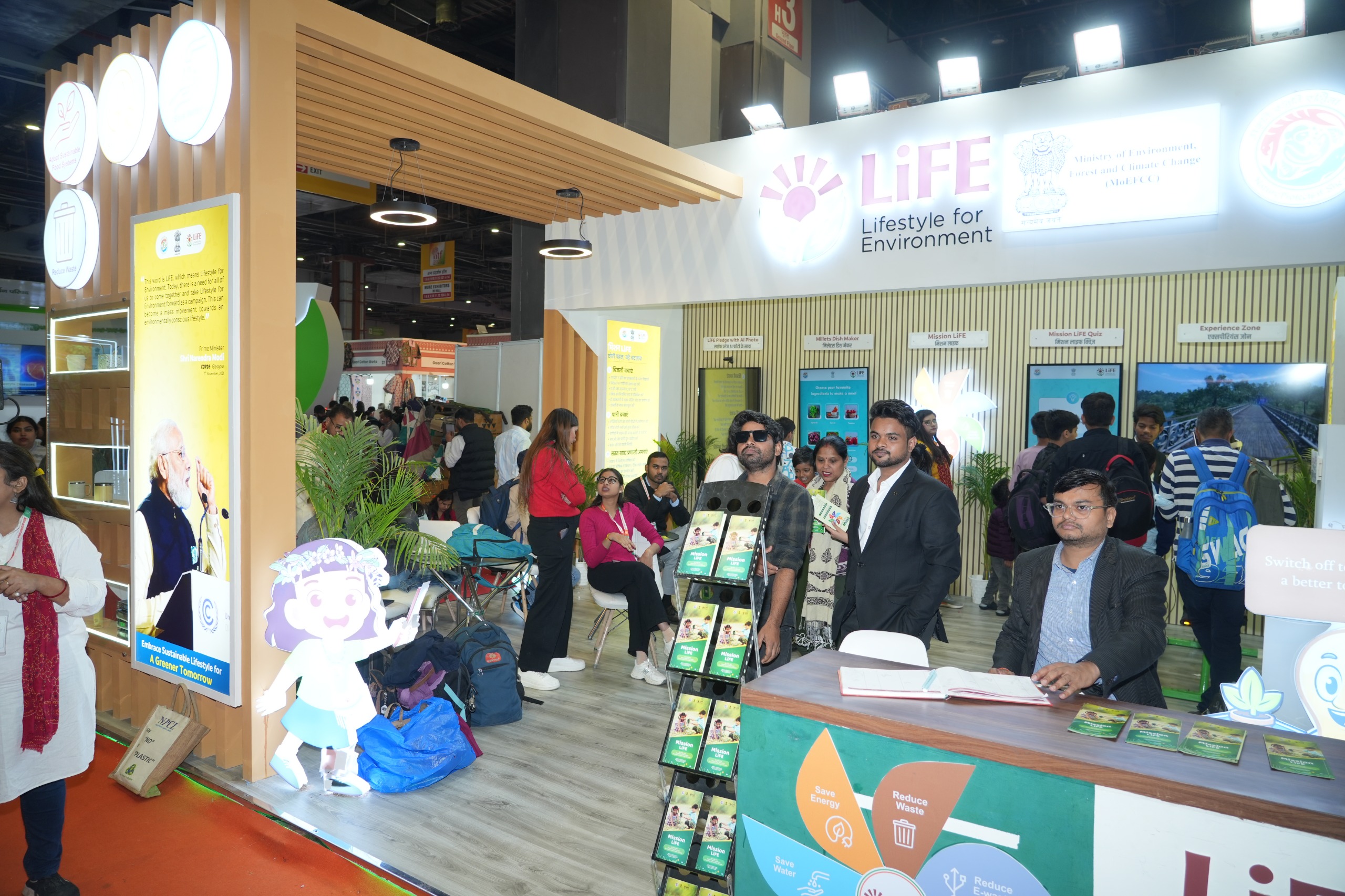
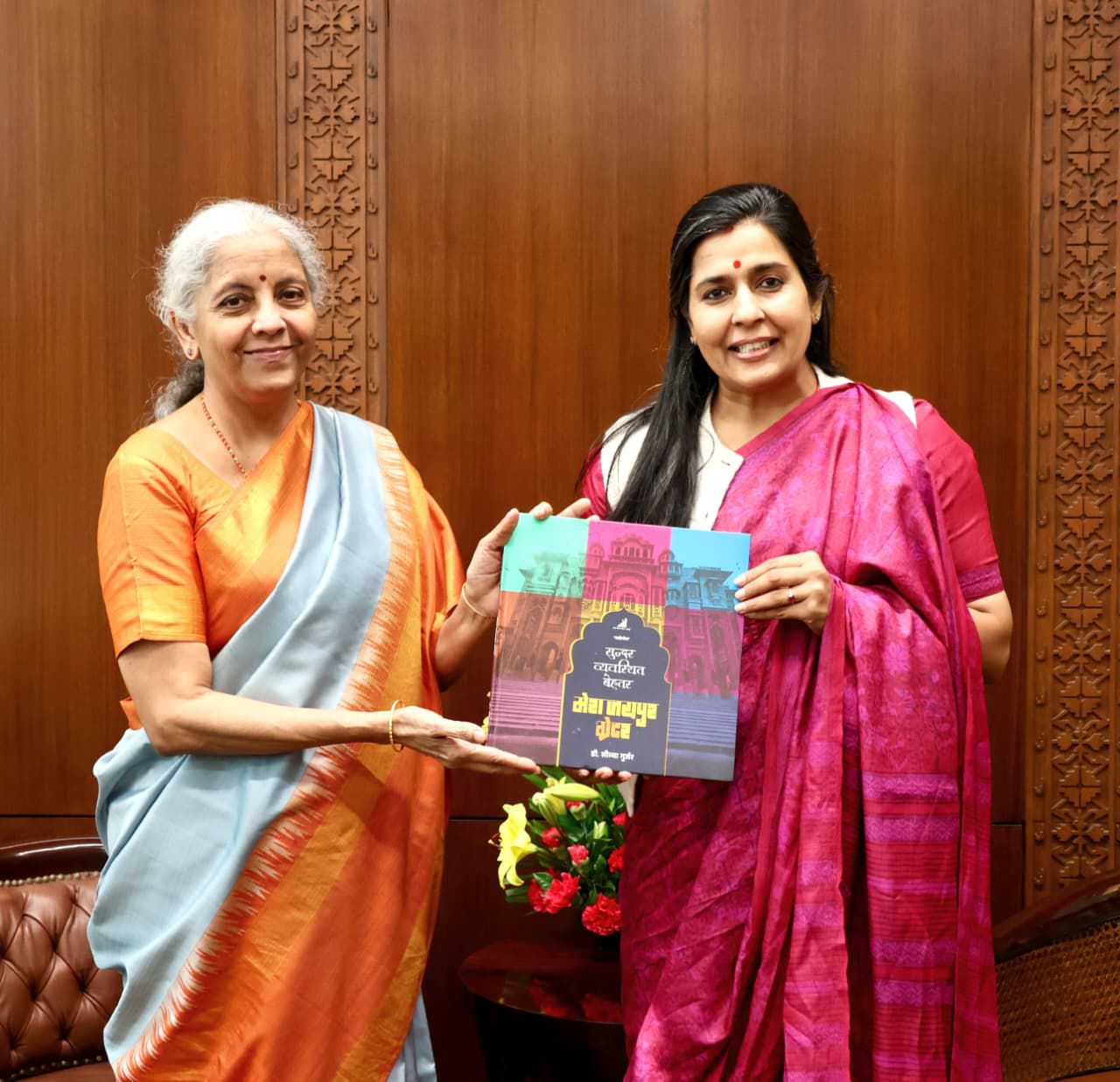
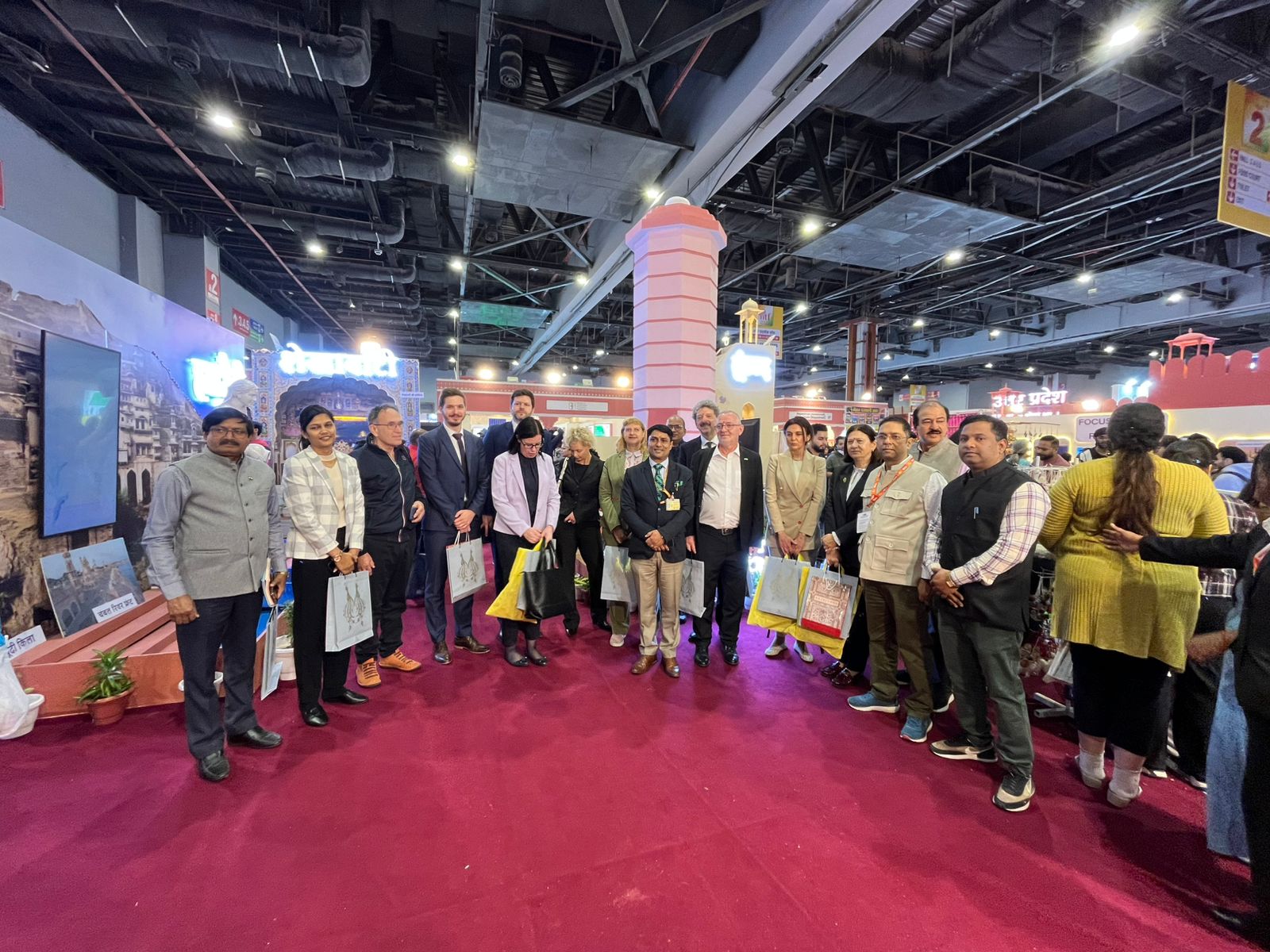
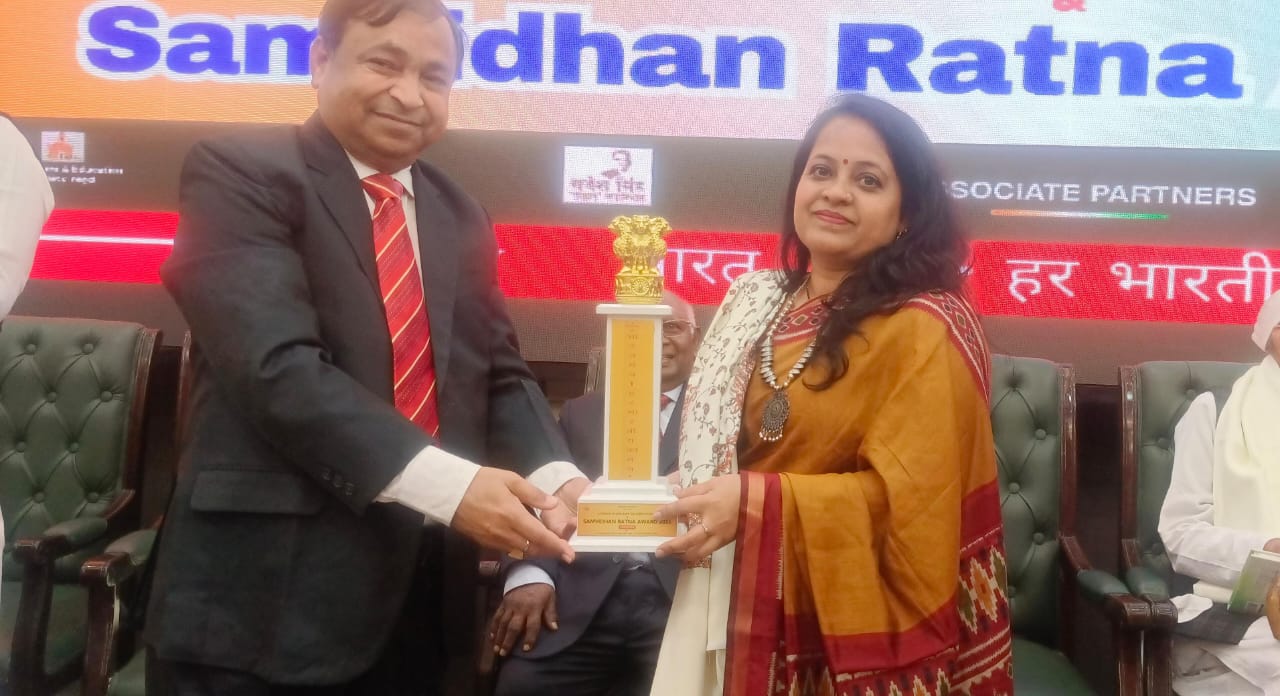
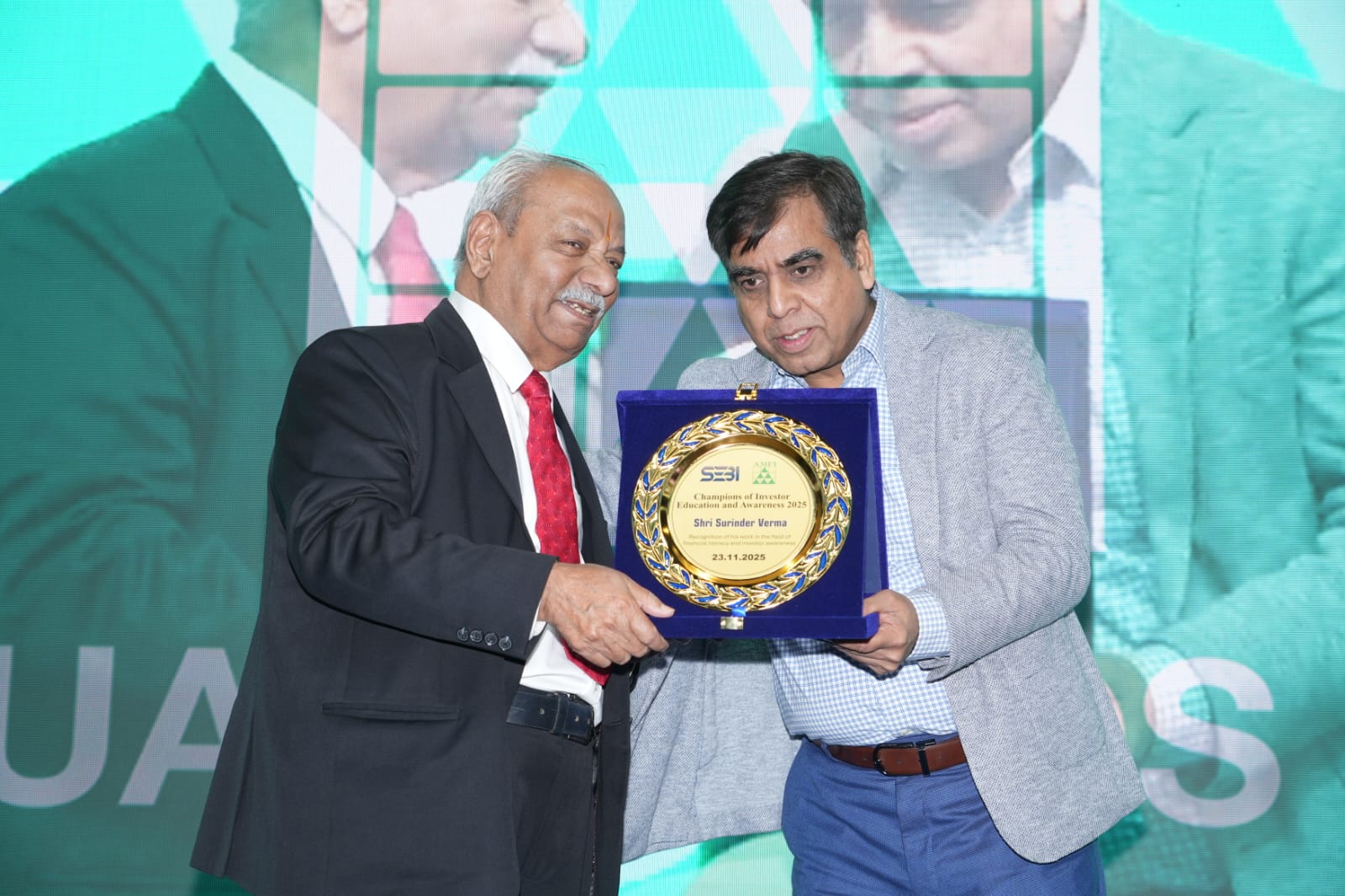
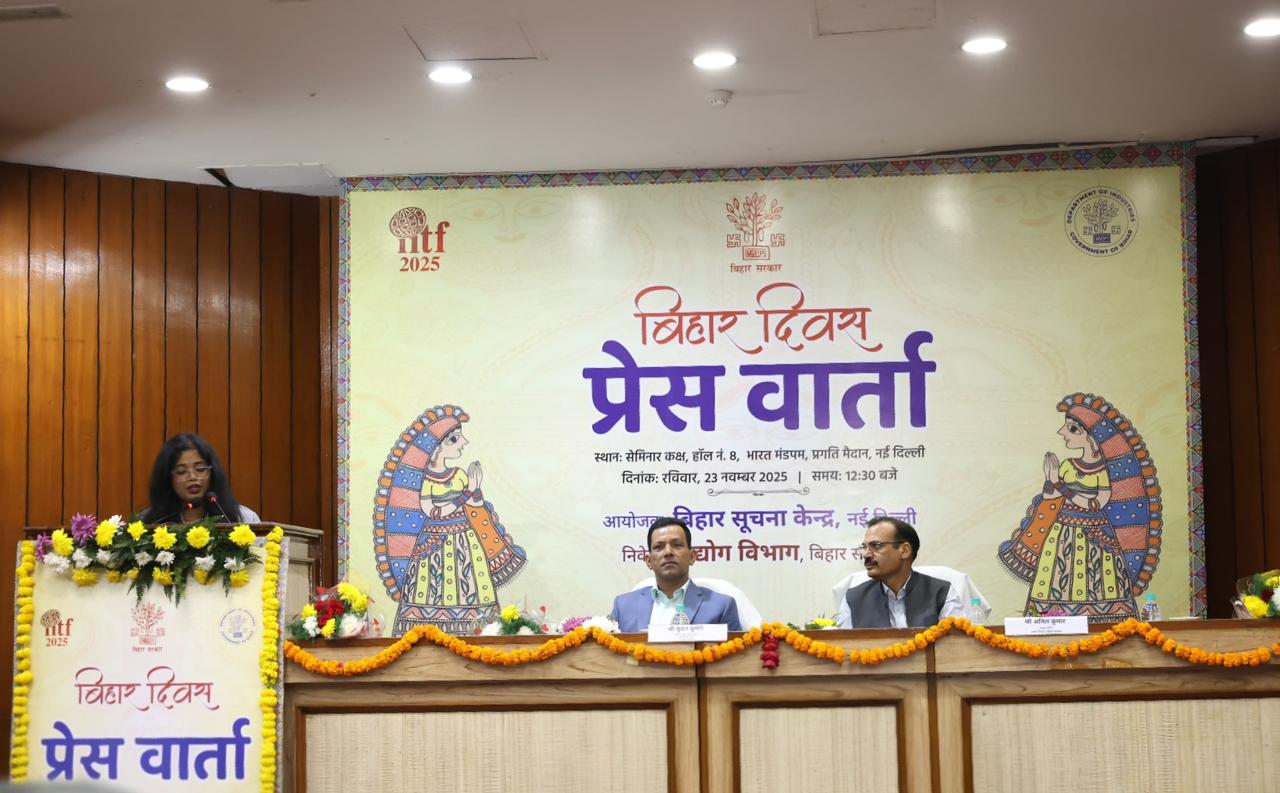

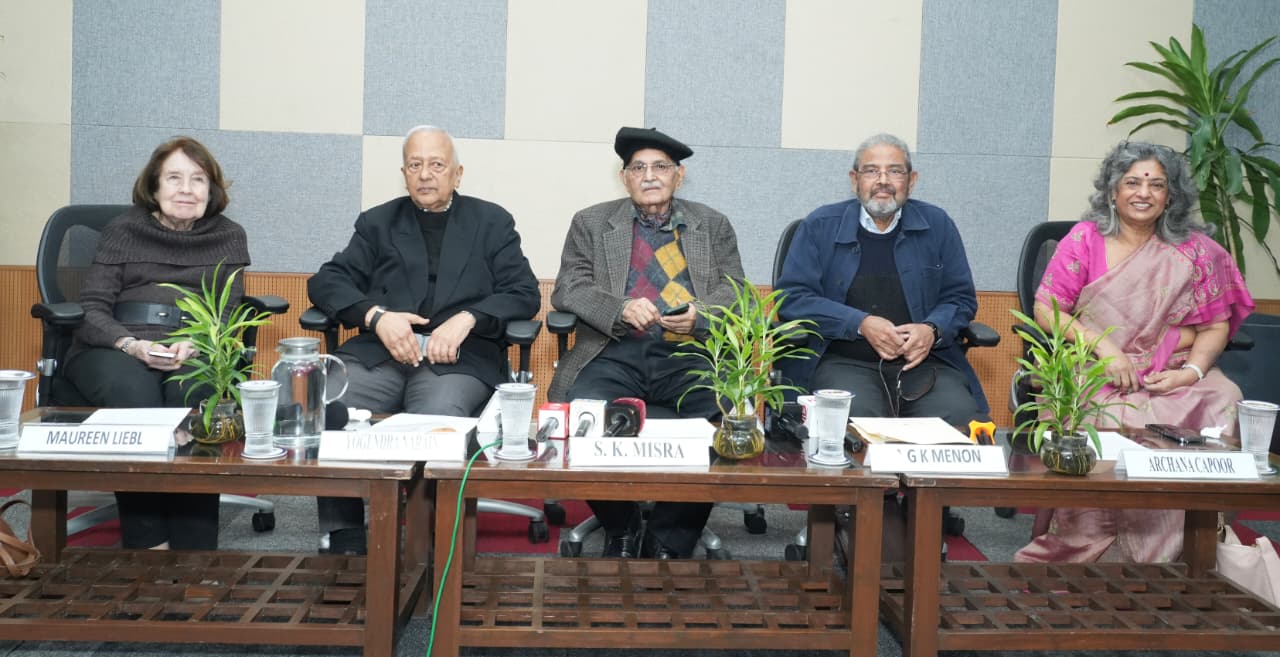
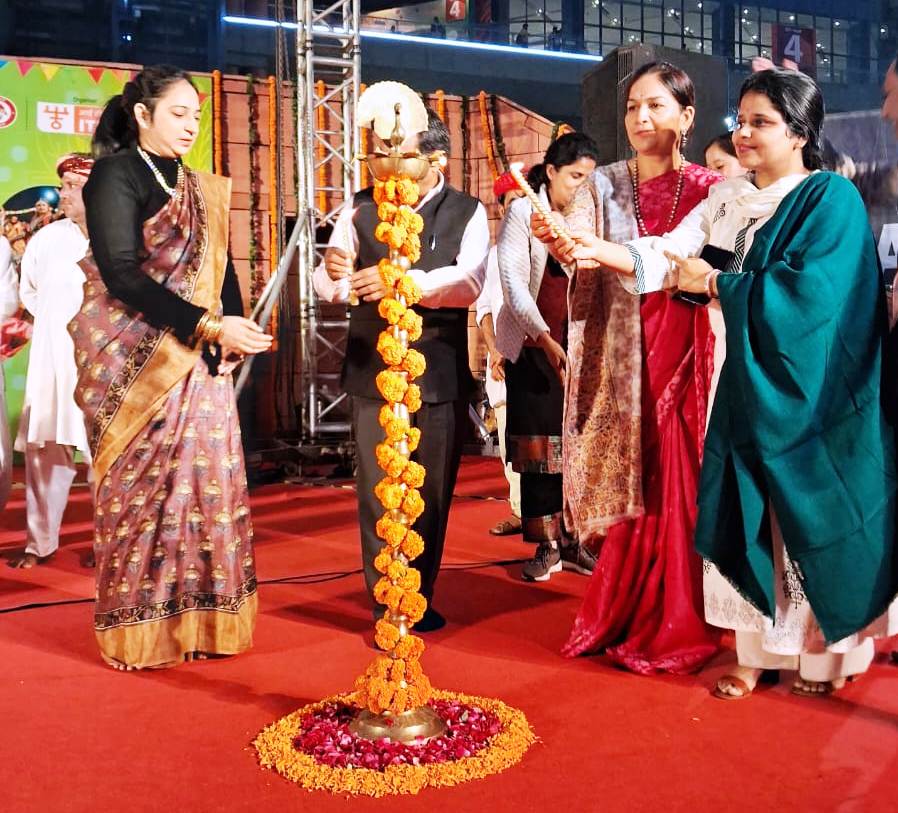
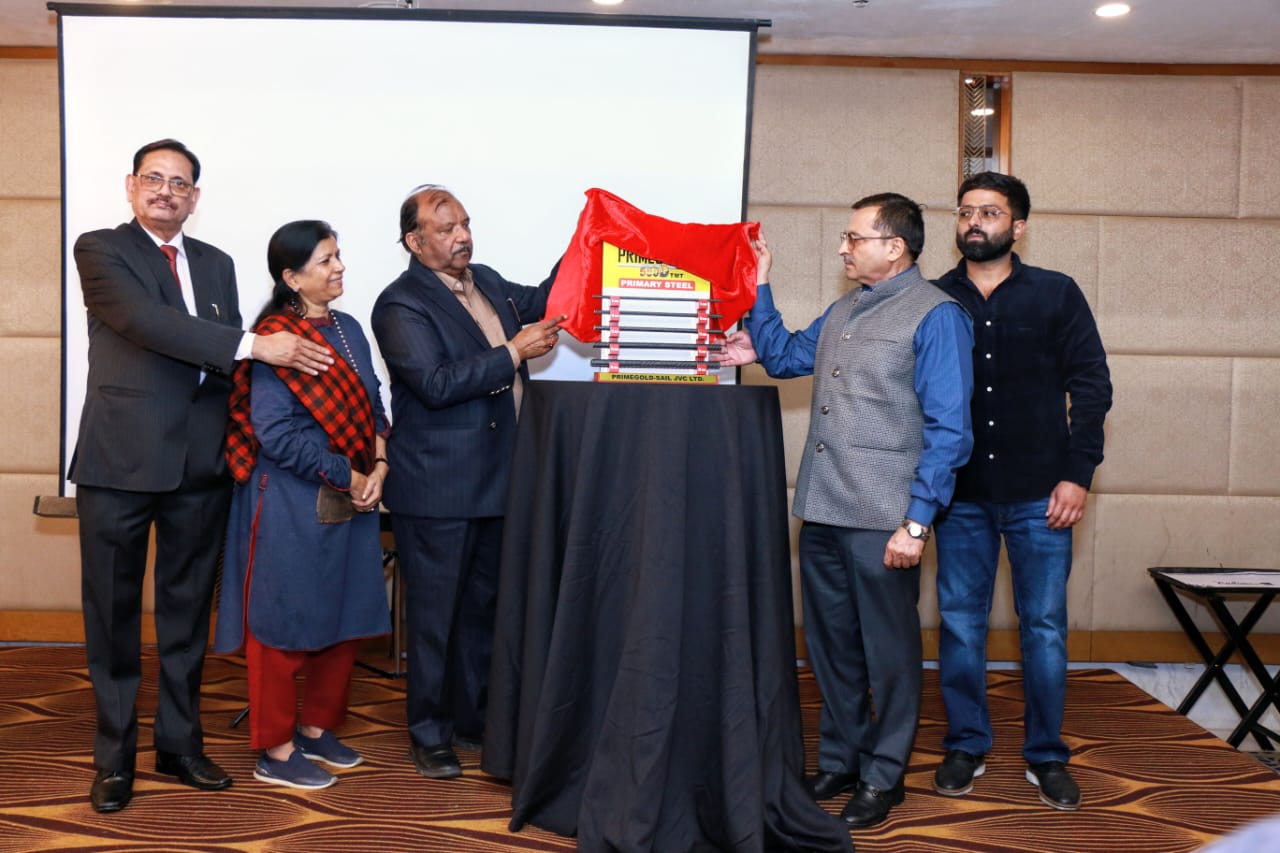
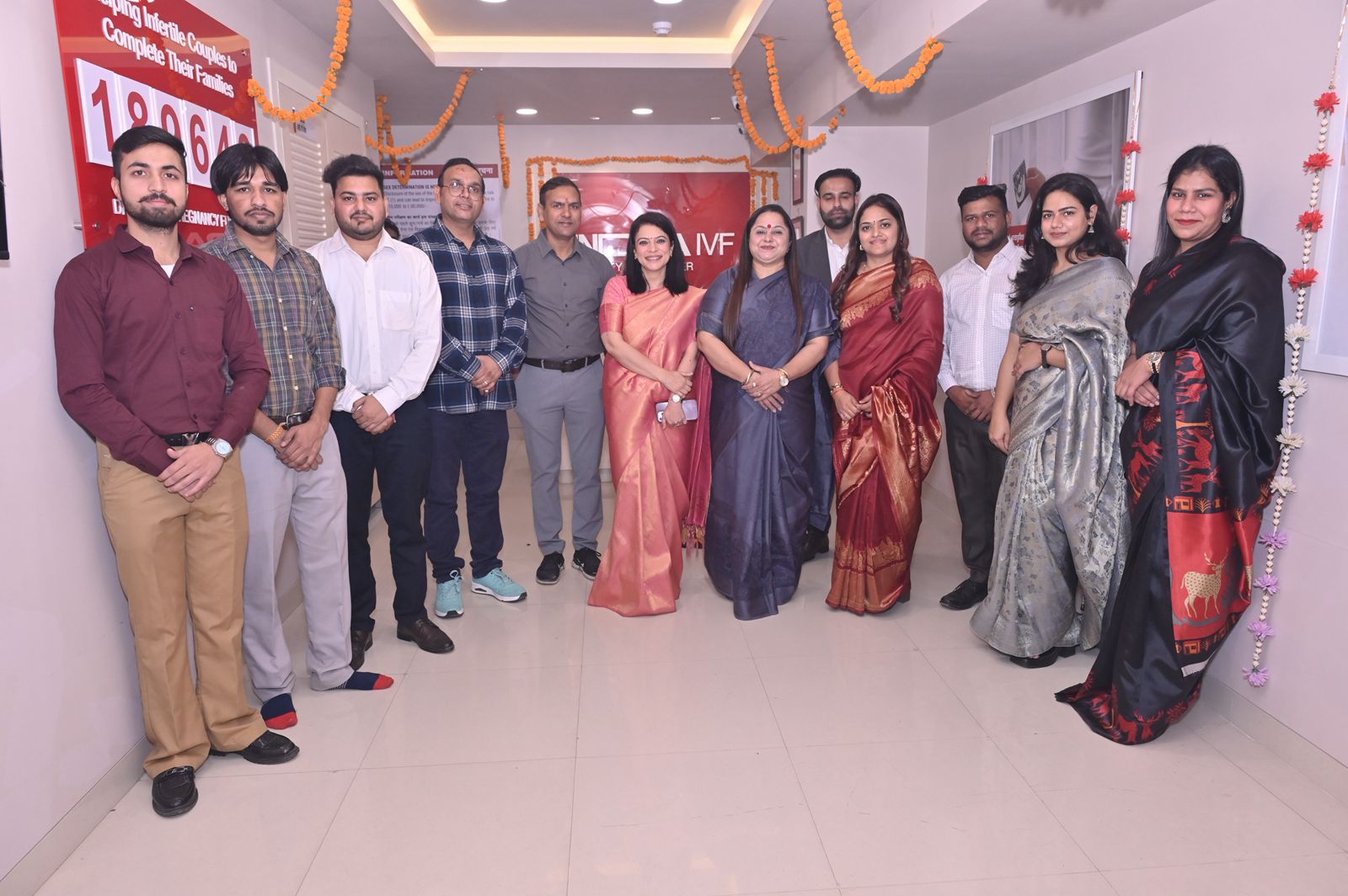
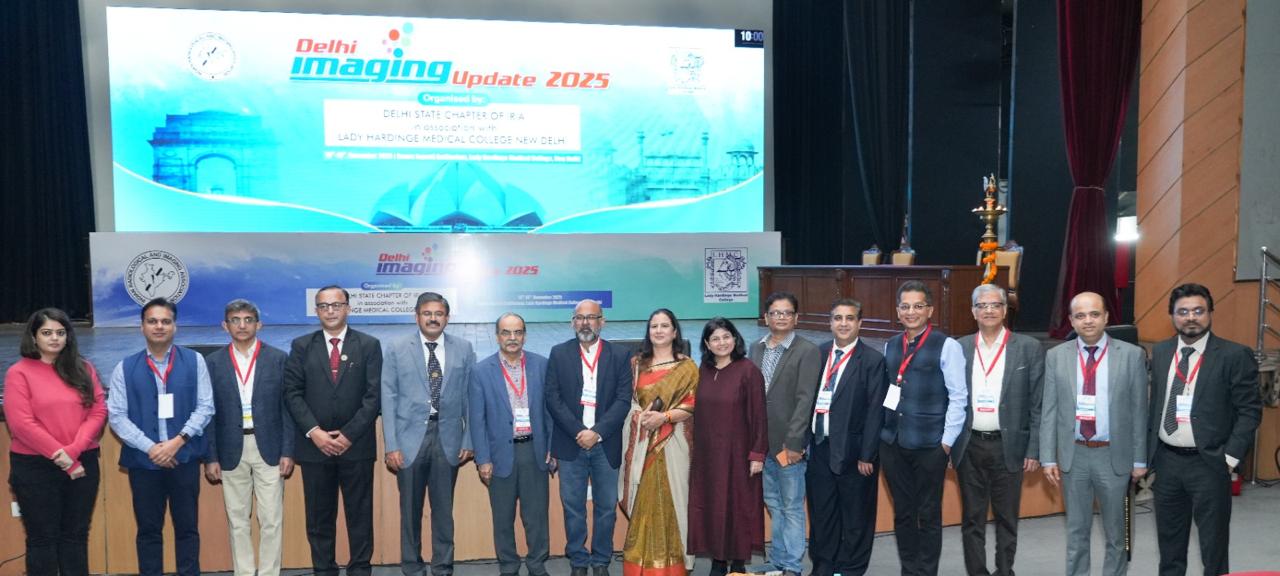
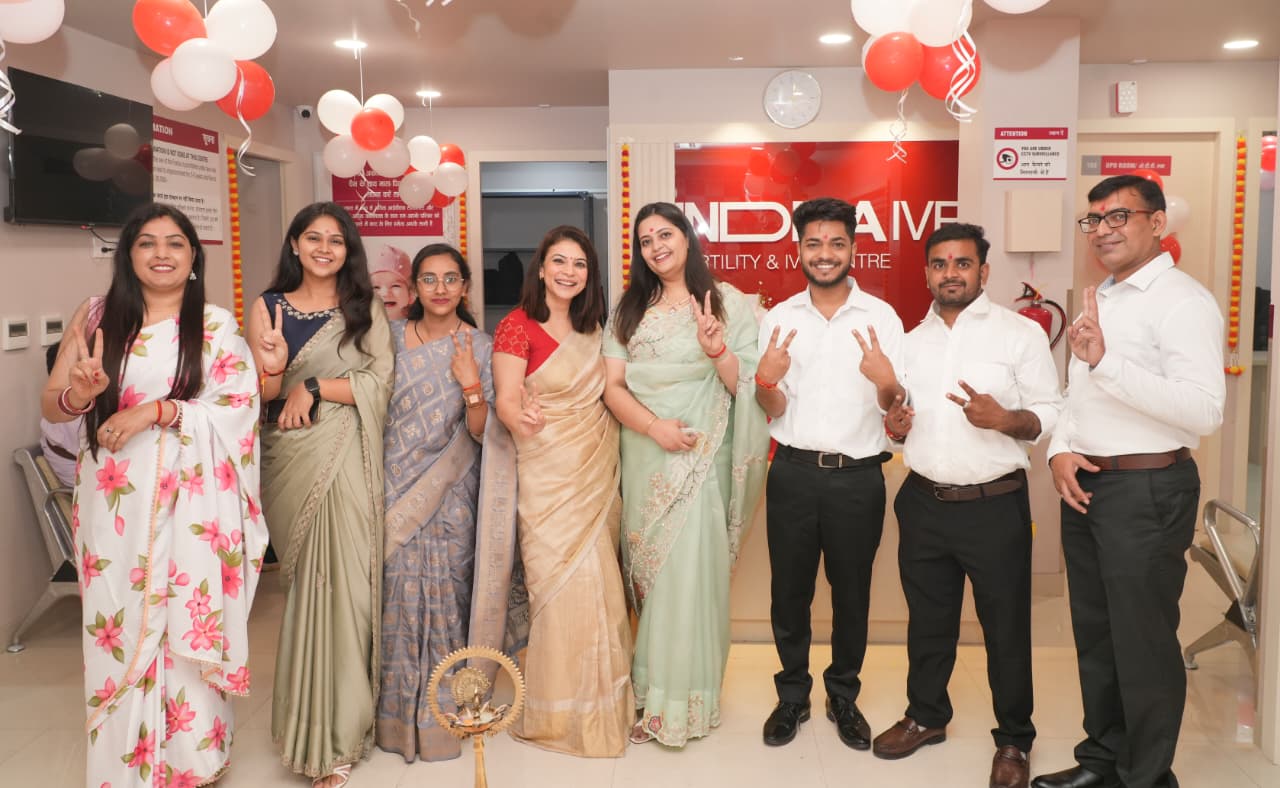
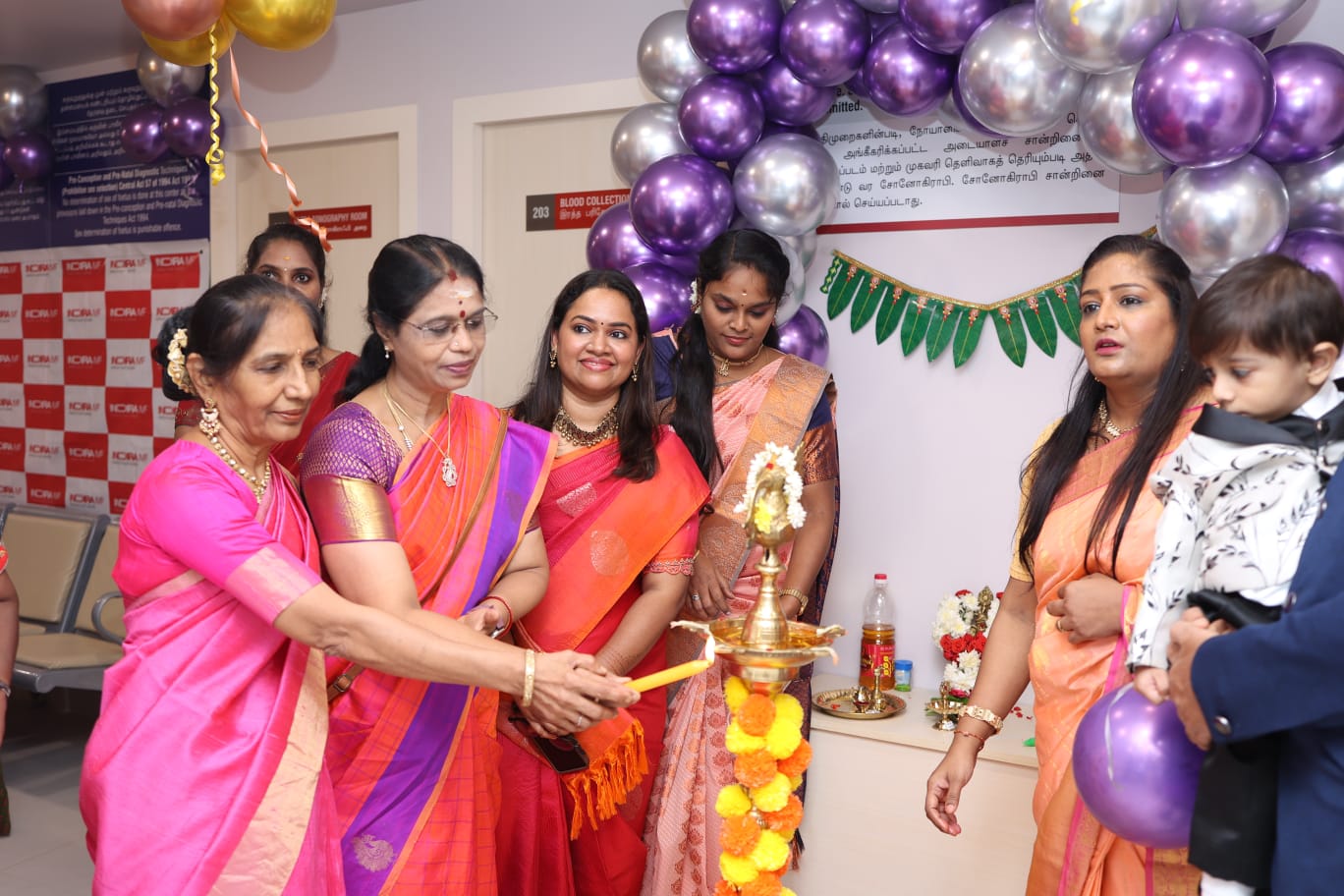
Leave a Reply